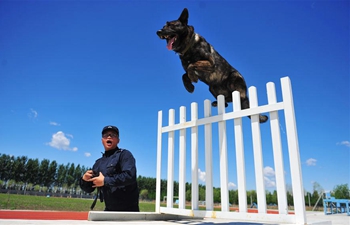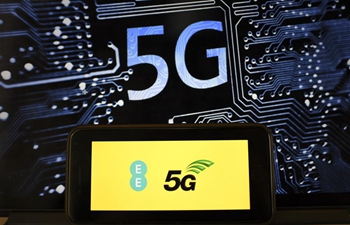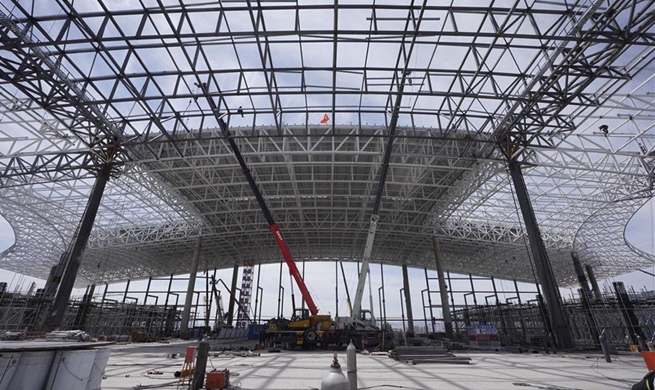CHICAGO, May 30 (Xinhua) -- By examining brain tumors in mice, researchers at Washington University School of Medicine in St. Louis discovered that immune cells that should be defending the body against disease sometimes can be enticed into providing aid and comfort to tumor cells instead.
How fast a tumor grows does not depend solely on how quickly the cancer cells can divide. The more immune cells a tumor can recruit to its side, the faster the tumor grows, the researchers found.
To better understand why some tumors grow faster than others, the researchers created five mouse strains with different genetic changes in the NF1 gene and elsewhere in the mouse's genome.
The five strains varied widely in tumor development and growth. Mice belonging to three of the strains grew tumors starting at about 3 months of age, with the tumors in one strain of mice growing particularly fast. Members of the fourth strain didn't grow tumors until they were about 6 months old, and only a quarter of mice in the fifth strain developed brain tumors on the optic nerve at all.
When the researchers isolated tumor cells from the mice and grew them in a dish, they found little difference in tumor cell growth. The growth rates and other properties of the cancer cells were very similar, no matter which mutation the tumor cells carried.
What did correlate with overall tumor proliferation in mice was the presence of two kinds of immune cells, microglia and T cells, within the tumors. The researchers discovered that the tumor cells themselves were releasing immune system proteins that attracted immune cells to the tumor.
"Cells that should be part of the brain's defense against tumors have become part of the process of making and growing a tumor," said senior author David H. Gutmann, a professor of neurology and director of the Washington University Neurofibromatosis Center.
The researchers now are trying to take advantage of this relationship between tumor cells and immune system cells to find new ways to treat brain tumors in people with NF1.
One strategy is to slow tumor growth by preventing microglia or T cells from providing support to the cancer cells. And a more ambitious strategy is to reprogram the T cells to no longer aid tumor cell growth.
The findings were published on Wednesday in the journal Neuro-Oncology.

















